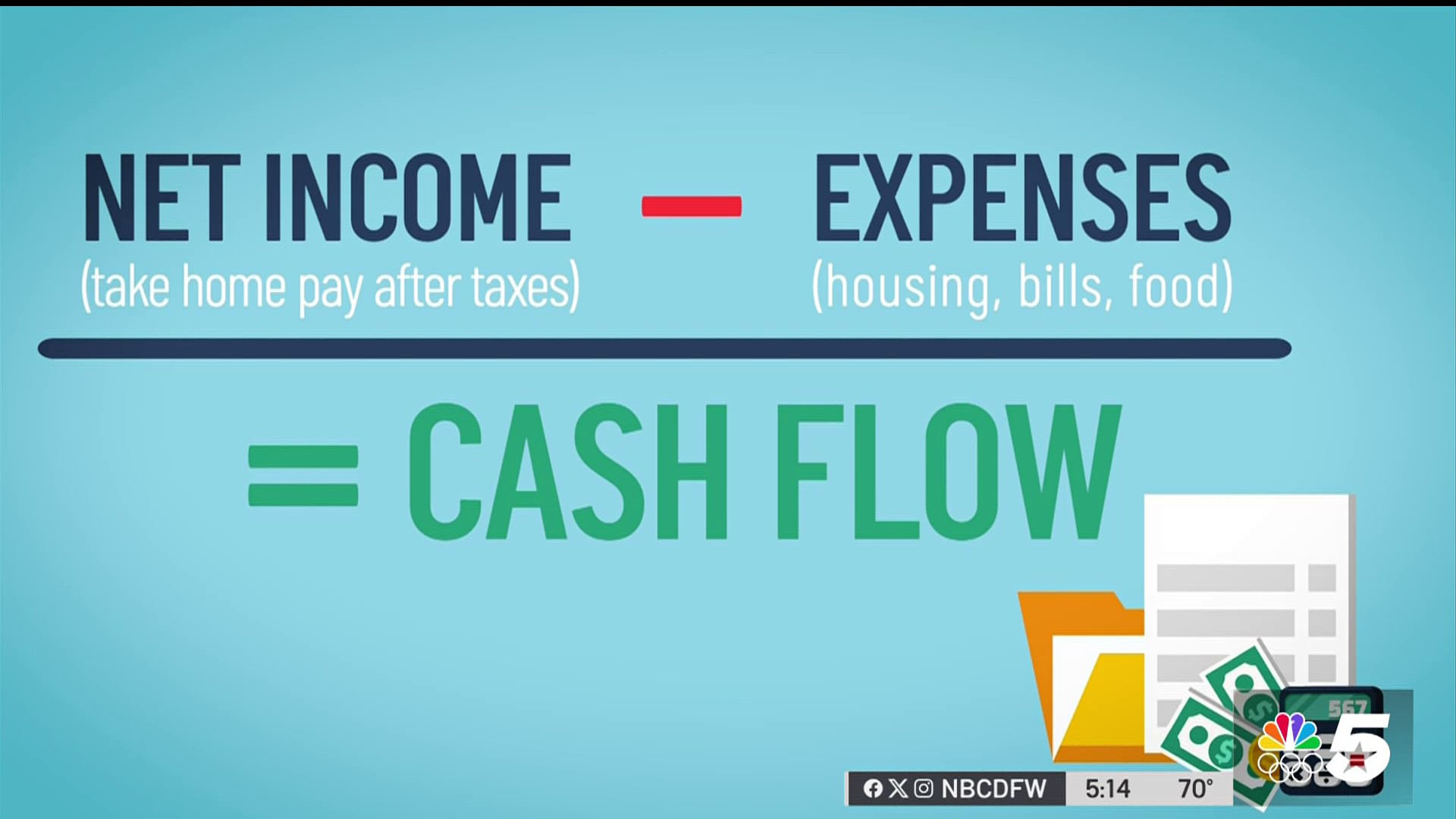A North Texas car buyer said he thought he did enough research after finding a used car on social media. The buyer ordered a vehicle history report and test-drove the car before paying cash. He said he was especially careful to note the VIN or vehicle identification number, a unique 17-digit code assigned to a vehicle.
It wasn’t enough.
Read on for a key step law enforcement says you should take before buying.
A DREAM CAR
Get DFW local news, weather forecasts and entertainment stories to your inbox. Sign up for NBC DFW newsletters.
For Nic Luna, it was love at first sight, “I fell in love with that car.”
After spotting a used Corvette Grand Sport for sale by an individual on a social media marketplace, Luna and the seller agreed to meet at a gas station parking lot.
“We texted back and forth, met up in Dallas,” Luna told NBC 5. “I saw the car, I got the VIN, ran it and then I texted him the next day that I wanted to buy the car.”
“I test-drove it,” Luna added. “Everything appeared to be good.”
Luna said he paid $35,000 cash for the car, sealing the deal on Valentine’s Day. He shared a video of his purchase on his Nic Lunatic YouTube channel, devoted to his passion for cars.
Then, heartbreak. Luna said he learned he’d unknowingly purchased a stolen vehicle.
Luna shared photos of documents the seller-provided, showing the VIN on the title matched the VIN plate in the dash, VIN stickers in the door jamb, along the edge of the hood and even under the lining in the trunk of the car.
Luna said the Dallas County tax office flagged the title when he applied to transfer it after the sale.
“It’s a real Texas title and, somehow, they pull off the old ink and then they re-stamp it,” Luna said.
“Who told you that?” asked NBC 5 Responds reporter Diana Zoga.
“The people at the tax office,” Luna replied.
Luna said their questions prompted him to inspect the car again. This time, he found a different VIN etched into the metal frame of the vehicle. A check of that VIN showed the car was reported stolen in December.
Luna filed a report with Dallas Police. Authorities came to Luna’s house and recovered the stolen Corvette, towing it away. Luna said he hasn’t been able to get back in touch with the man who sold him the car.
“It feels horrible, you know? The car is gone, my life savings is gone,” said Luna.
FAMILY LOSES THOUSANDS
It’s an issue we’ve seen before. Wendy Suastes told our colleagues at Telemundo Responde that she felt like she’d taken reasonable precautions when her family bought a pickup from an individual seller she found online.
“I asked him for his ID and took a picture of his ID and he signed the title,” Suastes told reporter Martha Minjarez.
Suastes said she later learned the man showed her a fake ID. The VIN stamped on the dashboard was altered to conceal the true VIN, which would have shown the truck was stolen.
“I was mad, sad. I wanted to cry because it was $24,000 we aren’t going to get back,” said Suastes.
“SOME OF THEM ARE VERY GOOD REPLICAS”
The North Texas Auto Theft Task Force showed us how a consumer may not notice signs of VIN plate or sticker tampering.
“You can see some flaws in them, but some of them are very good replicas,” said Doug Sisk with the Dallas County Sheriff’s Department.
Sisk said consumers who buy from an individual seller should ask the seller to meet at their local tax office to transfer the title before paying.
Sisk said, “You always want to verify it and go to a tax office and do an immediate title transfer. That way, you know if you have a legitimate car.”
Meeting at the tax office to ensure the title is properly transferred benefits an honest seller too.
According to the Texas DMV, a seller could be held responsible for tickets, toll violations or crimes committed with the vehicle if it’s still in their name after a sale.
The DMV also recommends car buyers ask an individual seller for past financing and insurance references. Call the bank or insurance provider to confirm.
Keep in mind: some stolen vehicles are moved quickly. The registered owner of the car may not realize the vehicle is missing. So, it may not yet be flagged as stolen in the system.
To protect themselves, Sisk said car buyers should be extremely skeptical if a seller is offering a price that seems too good to be true.
In Luna’s case, he said the seller told him the car was priced below market value because the seller was in a pinch.
“He actually had a whole story behind it,” Luna recalled of the seller. “He said he was going into back surgery and he already had a back surgery. He actually lifted up his shirt and showed me a scar.”
Luna warns other car lovers to complete a sale at the tax office to confirm the deal is real.
CAN AN ONBOARD DIAGNOSTICS SCANNER HELP?
You may be familiar with on-board diagnostic scanners. The scanners plug into a vehicle and read information off the car’s computer. Your mechanic likely uses one to help diagnose what prompted the check engine light to come on. The information read on the scanner would include the VIN.
There are basic, low-cost versions of error code reading scanners available to consumers for as little as $20.
NBC 5 asked around to find out if consumer-grade scanners could be a useful tool for car buyers to confirm a VIN is legit. An auto engineer at the Consumer Reports Auto Testing Center tells us it could help expose a poorly done VIN swap. However, it’s not foolproof. On some vehicles, it would be possible for a thief to alter the VIN that reads on a scan tool.
MORE TIPS AND TOOLS
John Ames, Dallas County Tax Assessor/Collector, tells NBC 5 that consumers buying from an individual should have the seller accompany them to the county tax office. Before submitting the title application, a tax office representative can tell you if the title that would be signed over to you is correct and valid as of that date.
Ames said the original title should be presented. The vehicle should be brought to the tax office at the time of transfer because a further inspection may be necessary.
Taking a photo of a title or VIN and asking the tax office to check it is not helpful in determining the validity of the title, said Ames.
In addition to the title, ask the seller to provide you with:
- Application for Texas Title and/or Registration (Form 130-U)
- Other supporting documents, such as the release of lien, insurance, vehicle inspection report, bill of sale and copy of seller’s ID.
Find more information from the Texas DMV about buying or selling a vehicle here.
You can find additional tips from the National Insurance Crime Bureau here.
If checking a VIN, you can find a link to providers approved by the U.S. Department of Justice to provide information from the National Motor Vehicle Title Information System to the public.
NBC 5 Responds is committed to researching your concerns and recovering your money. Our goal is to get you answers and, if possible, solutions and a resolution. Call us at 844-5RESPND (844-573-7763) or fill out our customer complaint form.
Get DFW local news, weather forecasts and entertainment stories to your inbox. Sign up for NBC DFW newsletters.



